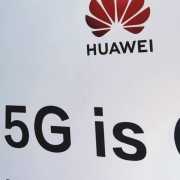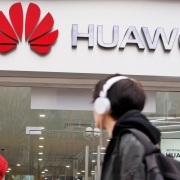American Politicians And Administrators Of All Stripes Are Sounding More And More Like Soviet Central Planners.
It’s been said by those who know Fred Smith well that when the visionary FedEx founder is asked about the U.S. Post Office, he’s known to say that in a competitive market he could put the government-created monopoly out of business in a matter of months. Smith’s confidence shouldn’t surprise readers, conservative readers least of all.
That’s the case because at least in their rhetoric, conservatives preach the gospel of market discipline. The Post Office would be extraordinarily vulnerable to competition precisely because it’s never faced the kind of competition and investor pressure that conservatives at least rhetorically deem so essential to corporate progress. If funding will always be abundant, and if funding will actually rise the more that mistakes are made, why make the hard decisions that real businesses make every day?
Stating what should be obvious, and has long been obvious to conservatives, the Post Office is a low-quality provider of fourth-rate service, and it’s that way because always-there government funding has shielded it from the market realities that would have otherwise strengthened it over the years; that, or put it out of business. In short, copious government support has weakened the Post Office. No entrepreneur or business would ever consider emulating it since mimicry of what defines bad service in the minds of all too many would repel the very investors necessary for a business to open its doors in the first place.
Smith’s opinion of the Post Office has routinely come to mind amid the odd conservative crack-up over Chinese communications giant Huawei. Republicans and conservatives inside and outside the Trump administration were very disappointed recently when British Prime Minister Boris Johnson announced that Huawei, a corporation so valued by its customers that it operates in 177 countries around the world, would “allow” the company’s “equipment to be used in Britain’s 5G wireless network.”
GOP hand wringing is puzzling. Long the Party that’s striven to properly associate itself with keeping government out of the rollout of anything commerce or market related, when it comes to what’s expected to be “next generation” in communications, Republicans find themselves parroting the very wording that animates the rhetoric of their ideological foes on the left, and in the extreme, the rhetoric of central planners from the 20th century. Don’t Republicans remember how horridly and murderously central planning failed, and don’t they remember how very much their political hero (with good reason) in Ronald Reagan confidently predicted the failure of statist regimes precisely because politicians, not market-disciplined businesses, were calling the commercial shots?
Yet when it comes to 5G, it’s as though state planners have entered the bodies and minds of conservatives and Republicans. Out of one side of their mouth they talk of the enormous potential of 5G to “transform” how business is done for the much, much better, only for them to proclaim out of the mouth’s other side the genius of a public/private 5G partnership. As the Wall Street Journal’s Bob Davis and Drew FitzGerald recently reported, “the White House is working with U.S. technology companies to create advanced software for next-generation 5G telecommunications networks.” Yes, you read that right. Conservatives believe that which is anti-innovation, and that which is where innovation routinely goes to die, is necessary to build up that which is billed as a revolutionary driver of technological advancement. No less than the great free-market champion Larry Kudlow confirmed to Davis and FitzGerald that “The big picture concept is to have all of the U.S. 5G architecture and infrastructure done by American firms.” Say it ain’t so!
Thinking about this, readers would be wise to stop and marvel for a second or two. It wasn’t too many years ago that conservatives figuratively trampled on one another as they raced to TV cameras and computers to mock the Obama White House and Democrats for the Solyndra bust-up, and that was just solar. Back then the very notion of public/private anything was anathema to conservatives, yet now they’re championing it for 5G. The technological future is coming, and it will be planned by conservatives in government!
Fear not, it gets weirder. Indeed, their support for government investment grows by the day. Hudson Institute senior fellow Thomas Duestenberg is the latest (but surely not the last) conservative to call for government planning in the development of 5G, along with government finance. Duestenberg et al want tens of billions of taxpayer dollars to allegedly bolster the 21st century equivalent of putting a man on the moon first. Funny here is that conservatives were up in arms back in 2011 when it was revealed that Solyndra had been the “beneficiary” of $535 million in government loan guarantees…
Needless to say, the previous number is chump change to the overnight planners on the right. Duestenberg laments that Huawei allegedly has received $75 billion from the Chinese government (as though the feds don’t wastefully shower all manner of taxpayer dollars on U.S. firms – TARP comes to mind, so does ExIm…), so he’s cheering bipartisan legislation and funding from Congress meant to “encourage development of open-architecture systems to promote Western competition to Huawei and ZTE.” Stranger still is that Duestenberg’s op-ed was hosted prominently by the Wall Street Journal’s editorial page, long the Holy Grail of free market opinion. Needless to say, the Obama White House’s partnership with the solar industry amid lefty alarmism about global warming wasn’t cheered by conservatives in the way that they now cheer government investment in that which alarms them.
Which brings us to a basic question: just what are conservatives so afraid of? If Huawei is truly a tool of the state as they want to believe, and as they keep telling us, then it’s a safe bet that its efforts to lead the world toward an amazing 5G-enhanced future will fall very short. What’s innovative and has major market applications of the technological variety is never hatched by government. So let the Chinese government spend enormous sums weakening Huawei as it produces something that consumers will reject.
On the other hand, and with Huawei’s seminal role in rapidly advancing global communications top of mind, let’s consider the possibility that conservative scholars and politicians have well overstated the Huawei threat (haven’t they overstated other threats before?). As in, let’s consider the very real possibility that Huawei is actually a great company, and that it thrives despite state investment. If so, what’s there to be afraid of? Most of us don’t live in Cupertino, Mountain View or Seattle, but open markets make it seem as though Apple, Google and Amazon are right next door.
When markets are open, location of business doesn’t matter. If Huawei can bring 5G to market the quickest, brilliant. Just as the Chinese aren’t hurt by Apple selling 1/5th of its iPhones in China, and just as Los Angelenos aren’t hurt because Microsoft is in Seattle, New Yorkers won’t be harmed by technological advances that happen in Shenzhen.
The main thing is that conservatives need to act like conservatives again. State planning fails. Always. If Huawei is truly a creation of the state, then conservatives needn’t worry about it growing so rapidly in the U.S. such that it can “spy” on us, and do other scary things. If not, conservatives might reacquaint themselves with their support of the open markets that similarly always succeed when it comes to lifting everyone up.





